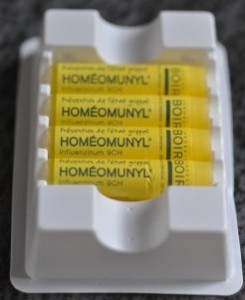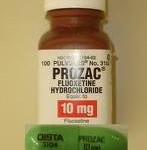There are always plenty of myths around, at any given time, about what is or isn’t meant to be good for us (supposedly). For example, many doctors used to advise their patients to smoke cigarettes, avoid eggs, substitute margarine for butter, and to cover themselves with oil-based, ‘skin-protection’ creams before, well, frying themselves for hours in the sun. I imagine some doctors still subscribe to the latter two beliefs. Experts often have difficulty changing their opinions on the basis of new research results.
Anyway, speaking of frying, a friend recently offered us some ‘healthy’ chips (potato crisps), which had been deep-fried in olive oil. Leaving aside the effects of deep-frying anything, we couldn’t help noticing how unusually tasteless they were. Why? Because, being ‘healthy,’ they had no added salt. And, as we all ‘know,’ reducing our salt intake is good for our hearts, isn’t it? Continue reading →
Do Antiperspirants Cause Breast Cancer?
In a recent article on Mercola.com, Russel L. Blaylock M.D., says that a number of studies have shown that, “. . . free iron concentrations in breast tissue, especially the ductal tissue, is playing a major role in stimulating cancer development and eventual progression to aggressive, deadly cancers.”
Dr. Blaylock goes on to say:
“We now know that both aluminum and alcohol can displace the iron from its protective proteins, raising the level of harmful free iron, even when these protective proteins are not fully saturated with iron.9
If this occurs within the breast, as this study demonstrates, free iron levels in the breast ductal tissue can become dangerously high and over time induce malignant tumor formation.
The question to be asked is–where did the aluminum come from?
The authors of the paper suggested underarm antiperspirants as a possibility . . .”
This caught my attention because, yesterday evening, I was watching a commercial on television featuring a number of women celebrating the fact that they weren’t experiencing unsightly under-arm perspiration due to whatever product they were promoting. And I was thinking about how, if any one of those women developed a little of her potential energy awareness, she’d be getting that stuff off herself as fast as she possibly could . . .
An Easy Way To Help Prevent Flu
Three days ago, some friends, who’d had the flu vaccine, came for lunch. One of them had also, unsurprisingly, subsequently caught the flu . . . You may not be aware of this, but the vaccine can increase your chances of getting the flu . . .

Influenzinum
Last night, I started sneezing and feeling achy. So I took a homeopathic remedy: Influenzinum 9C. This morning, I sneezed a few times. And now, three hours later, I’m fine. This is a typical story about Influenzinum – the most effective flu preventative and treatment – if the bug is caught early enough – I know of.
In approximately 90 percent of the cases no instances of the flu occurred when Influenzinum was used – FLU: Alternative Treatments and Prevention
by Randall Neustaedter OMD
Whilst science is busy understanding why 50% of people don’t respond to the SSRI anti-depressants – fluoxetine (Prozac or Sarafem), citalopram (Celexa), paroxetine (Seroxat or Paxil) and sertraline (Zoloft),  or experience severe side-effects (see the study led by Professor Rene Han, professor of pharmacology in the Departments of Psychiatry and Neuroscience at Columbia University, published in the January 2010 issue of the Journal Neuron and also the work at Michigan by Dr John Traynor, professor of pharmacology at the U-M Medical School and director of the U-M Substance Abuse Research Center, published in Proceedings of the National Academy of Sciences) – someone may have forgotten to tell your doctor.
or experience severe side-effects (see the study led by Professor Rene Han, professor of pharmacology in the Departments of Psychiatry and Neuroscience at Columbia University, published in the January 2010 issue of the Journal Neuron and also the work at Michigan by Dr John Traynor, professor of pharmacology at the U-M Medical School and director of the U-M Substance Abuse Research Center, published in Proceedings of the National Academy of Sciences) – someone may have forgotten to tell your doctor.
And given that anti-depressants are one of the most over-prescribed drugs on the market – SSRI use increased from from 14.7 million in 2005 to 16.2 million in 2006 in the UK and 118 million prescriptions were written for antidepressants in the USA in 2005, I would think very carefully before asking my doctor for them. Doctors tend to prescribe them more when asked by their patients. The mental health charity MIND reported that 93% of GP’s have prescribed drugs due to ‘lack of alternatives.’ (In fact, there are many). Continue reading →



